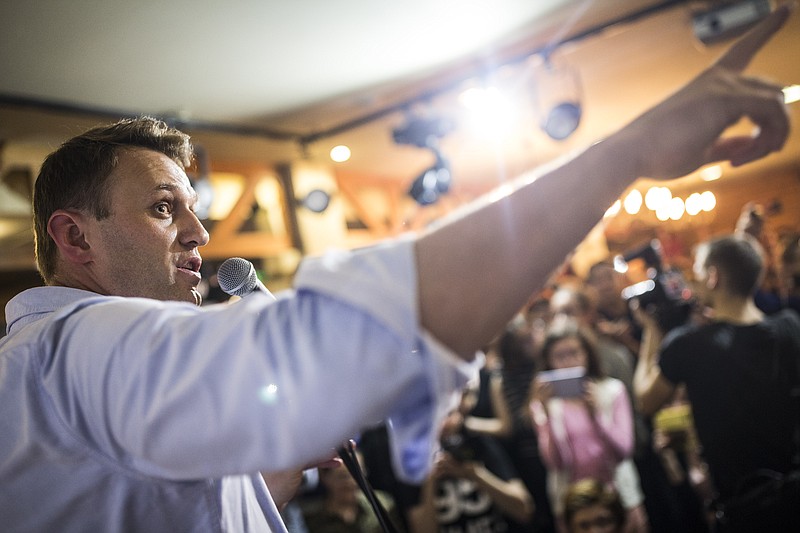MOSCOW (AP) - Russian opposition leader Alexei Navalny, aiming to repeat the nationwide protests that rattled the Kremlin three months ago, has called for a last-minute location change for a Moscow demonstration that could provoke confrontations with police.
Although city authorities had agreed to a location for the gathering that is to be the centerpiece of Monday's protests, Navalny called for it to be moved to one of Moscow's main thoroughfares. He said contractors hired to build a stage at the agreed-upon venue could not do their work after apparently coming under official pressure.
After the change, Moscow police warned that "any provocative actions from the protesters' side will be considered a threat to public order and will be immediately suppressed."
More than 1,000 protesters were arrested at a similar rally March 26.
The protests in March took place in scores of cities across the country, the largest show of discontent in years and a challenge to President Vladimir Putin's dominance of the country.
The Kremlin has long sought to cast the opposition as a phenomenon of a privileged, Westernized urban elite out of touch with people in Russia's far-flung regions.
Monday's protests could demonstrate that the opposition has significant support throughout the vast country.
Navalny's website reported Monday that protests were held in more than a half-dozen cities in the Far East, including the major Pacific ports of Vladivostok and Khabarovsk and in Siberia's Barnaul. Photos on the website suggested turnouts of hundreds at the rallies.
Eleven demonstrators were arrested in Vladivostok, according to OVD-Info, a website that monitors political repressions.
Navalny has become the most prominent figure in an opposition that has been troubled by factional disputes. He focuses on corruption issues and has attracted a wide following through savvy use of internet video. His report on alleged corruption connected to Prime Minister Dmitry Medvedev was the focus of the March protests.
Navalny has announced his candidacy for the presidential election in 2018. He was jailed for 15 days after the March protests. In April, he suffered damage to one eye after an attacker doused his face with a green antiseptic liquid.
